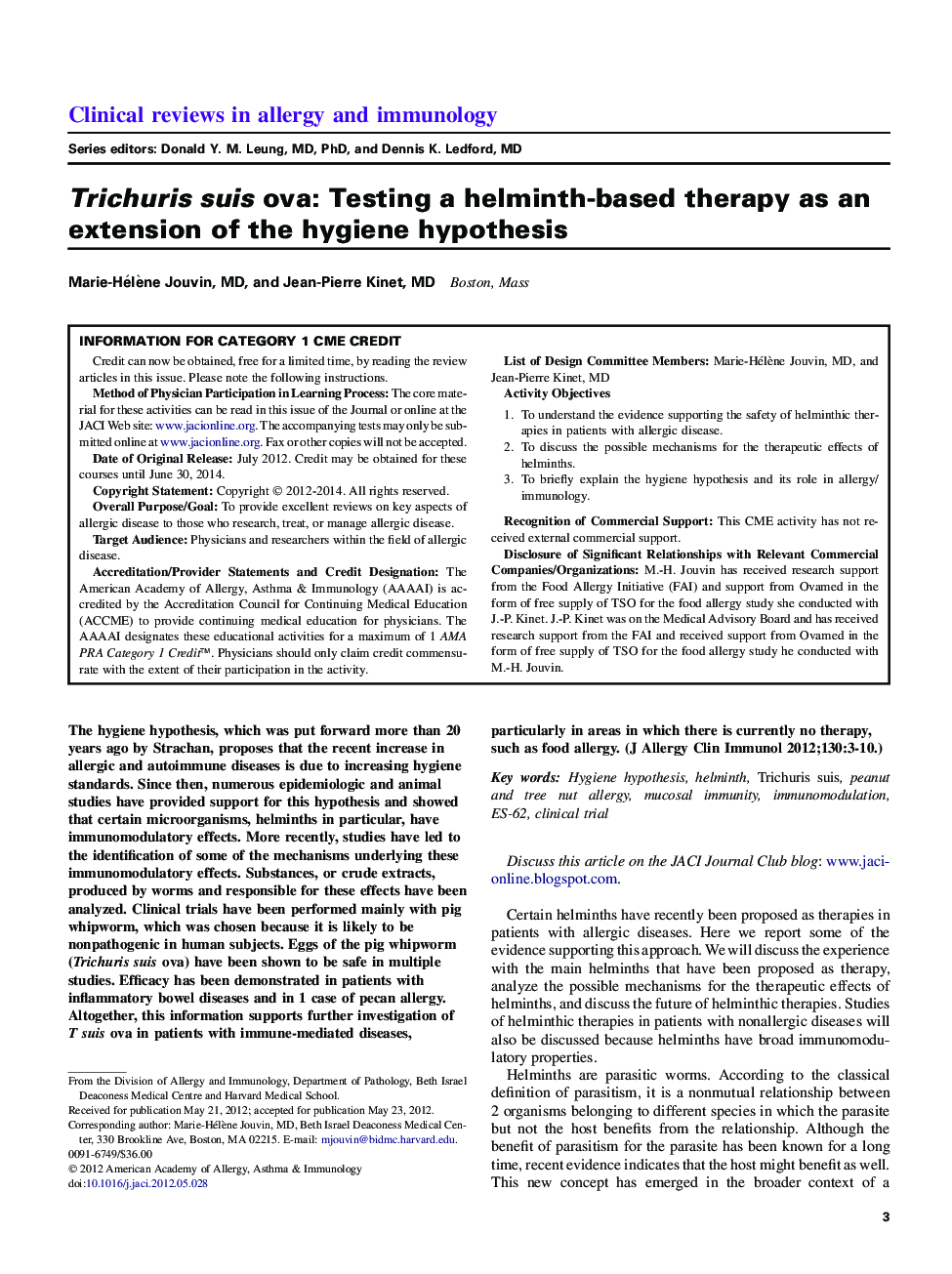| کد مقاله | کد نشریه | سال انتشار | مقاله انگلیسی | نسخه تمام متن |
|---|---|---|---|---|
| 3198653 | 1201896 | 2012 | 8 صفحه PDF | دانلود رایگان |

The hygiene hypothesis, which was put forward more than 20 years ago by Strachan, proposes that the recent increase in allergic and autoimmune diseases is due to increasing hygiene standards. Since then, numerous epidemiologic and animal studies have provided support for this hypothesis and showed that certain microorganisms, helminths in particular, have immunomodulatory effects. More recently, studies have led to the identification of some of the mechanisms underlying these immunomodulatory effects. Substances, or crude extracts, produced by worms and responsible for these effects have been analyzed. Clinical trials have been performed mainly with pig whipworm, which was chosen because it is likely to be nonpathogenic in human subjects. Eggs of the pig whipworm (Trichuris suis ova) have been shown to be safe in multiple studies. Efficacy has been demonstrated in patients with inflammatory bowel diseases and in 1 case of pecan allergy. Altogether, this information supports further investigation of T suis ova in patients with immune-mediated diseases, particularly in areas in which there is currently no therapy, such as food allergy.
Journal: Journal of Allergy and Clinical Immunology - Volume 130, Issue 1, July 2012, Pages 3–10